
Irbid: The Hidden Gem of Northern Jordan
Nestled in the fertile northern region of Jordan, Irbid is a city that effortlessly blends history, culture, and modernity. Known for its lush surroundings and cool climate, Irbid is a refreshing escape from the arid landscapes typically associated with the Middle East. The city is home to several universities, giving it a youthful and vibrant atmosphere. Walking through its lively streets, you’ll encounter a mix of traditional markets and modern cafes, reflecting the city’s unique charm. Irbid is a gateway to some of Jordan’s most significant archaeological sites. Just a short drive away, you can explore the ancient ruins of Gadara (Umm Qais), a city of the Decapolis that offers breathtaking views of the Sea of Galilee and the Golan Heights. The site is a testament to the region's rich history, with remnants of Roman theaters, Byzantine churches, and Ottoman-era houses. Another nearby attraction is Pella, an ancient city that dates back to the Neolithic period. The city itself boasts a variety of museums, including the Museum of Jordanian Heritage, which provides a deep dive into the local culture and history. The Yarmouk University Museum is another must-visit, featuring impressive archaeological finds. For nature lovers, the Ajloun Forest Reserve is within reach, offering lush greenery and scenic hiking trails. Whether you're a history buff, a nature enthusiast, or simply looking to experience Jordanian hospitality, Irbid has something for everyone.
Local tips in Irbid
- Visit Umm Qais early in the morning to avoid the crowds and enjoy the best views.
- Local markets offer unique souvenirs; don’t forget to haggle for the best prices.
- Try the local cuisine at traditional restaurants for an authentic Jordanian experience.
- Check the university event calendars; you might catch a cultural or student event.
- If visiting in the summer, bring a light jacket as evenings can be cool.
Irbid: The Hidden Gem of Northern Jordan
Nestled in the fertile northern region of Jordan, Irbid is a city that effortlessly blends history, culture, and modernity. Known for its lush surroundings and cool climate, Irbid is a refreshing escape from the arid landscapes typically associated with the Middle East. The city is home to several universities, giving it a youthful and vibrant atmosphere. Walking through its lively streets, you’ll encounter a mix of traditional markets and modern cafes, reflecting the city’s unique charm. Irbid is a gateway to some of Jordan’s most significant archaeological sites. Just a short drive away, you can explore the ancient ruins of Gadara (Umm Qais), a city of the Decapolis that offers breathtaking views of the Sea of Galilee and the Golan Heights. The site is a testament to the region's rich history, with remnants of Roman theaters, Byzantine churches, and Ottoman-era houses. Another nearby attraction is Pella, an ancient city that dates back to the Neolithic period. The city itself boasts a variety of museums, including the Museum of Jordanian Heritage, which provides a deep dive into the local culture and history. The Yarmouk University Museum is another must-visit, featuring impressive archaeological finds. For nature lovers, the Ajloun Forest Reserve is within reach, offering lush greenery and scenic hiking trails. Whether you're a history buff, a nature enthusiast, or simply looking to experience Jordanian hospitality, Irbid has something for everyone.
When is the best time to go to Irbid?
Iconic landmarks you can’t miss
Al-Hasan Sport City
Explore Al-Hasan Sport City in Irbid, Jordan, a state-of-the-art sports complex celebrating athletic culture and community spirit.
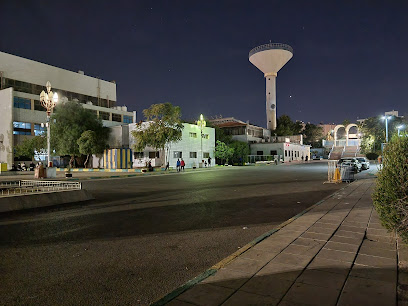
Irbid Mall
Explore Irbid Mall, a vibrant shopping hub in Jordan, with diverse stores, delightful dining options, and engaging entertainment for all.
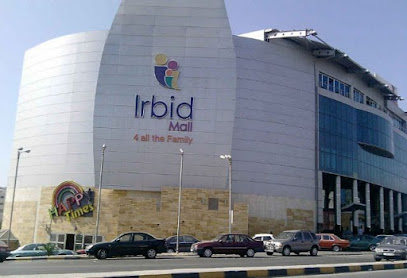
Tariq Park
Experience tranquility and natural beauty at Tariq Park in Irbid, Jordan, a perfect escape for families and nature lovers.
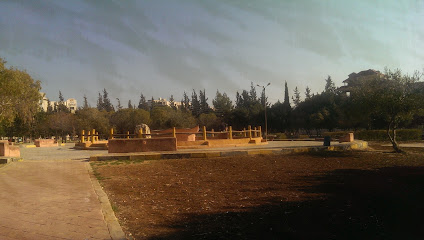
Irbid Clock Memorial Square
Discover the rich history and vibrant culture at Irbid Clock Memorial Square, a must-visit landmark in the heart of Jordan.
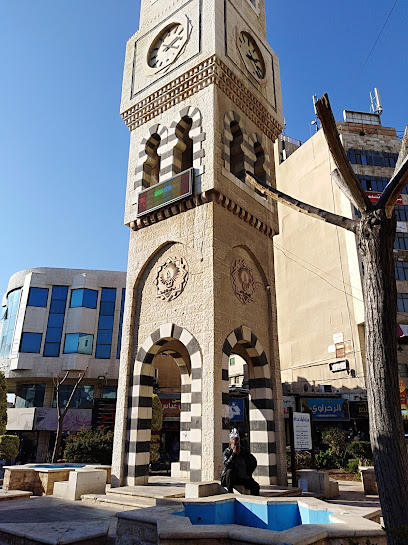
Galaxy Park
Experience the thrills and excitement of Galaxy Park in Irbid, Jordan's ultimate amusement destination for family fun and adventure.
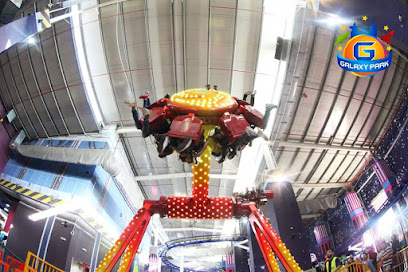
Dar As Saraya Osmanli Museum
Discover the rich history of the Ottoman Empire at Irbid's Dar As Saraya Osmanli Museum, a treasure trove of artifacts and cultural heritage.
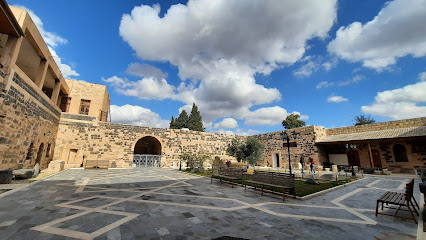
Sara Crown Hotel
Discover the charm of Irbid while enjoying a comfortable stay at Sara Crown Hotel, equipped with modern amenities and a welcoming atmosphere.

Al-Yarmouk Battle Location
Explore the historic Al-Yarmouk Battle Location in Saham, Jordan, and immerse yourself in the rich tapestry of ancient battles and cultural heritage.
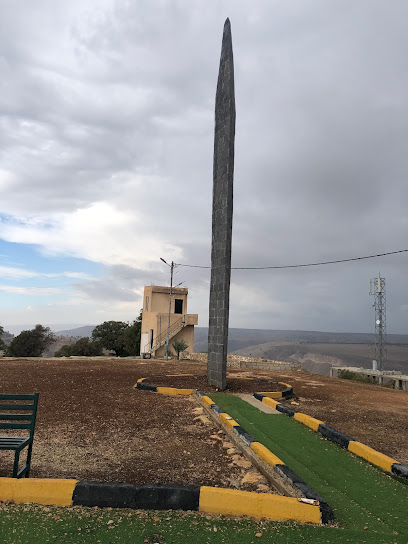
Irbid Aquapark
Experience thrilling slides, relaxing pools, and family-friendly attractions at Irbid Aquapark, the ultimate water park in Jordan.
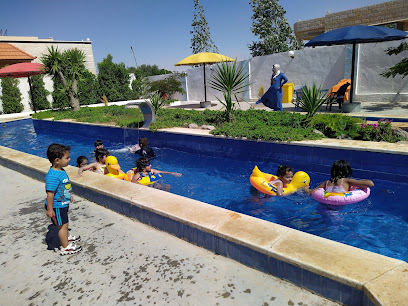
Arar's Cultural House
Explore the vibrant heritage of Jordan at Arar's Cultural House in Irbid, where culture, history, and art come together.
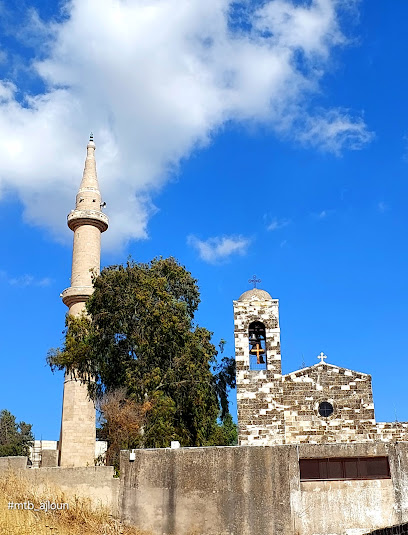
Irbid Saray Osmanli Citadel
Explore the Irbid Saray Osmanli Citadel, a historical landmark in Jordan that showcases the architectural glory of the Ottoman Empire and offers stunning views.
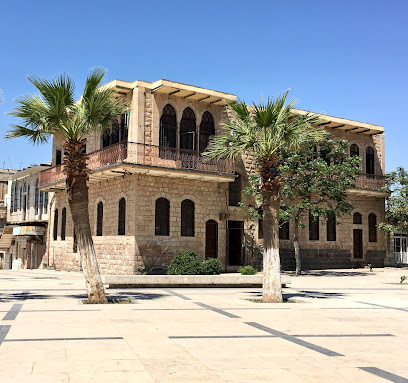
Irbid Historical Hill
Discover the enchanting Irbid Historical Hill, a treasure trove of ancient history and panoramic views in the vibrant city of Irbid, Jordan.
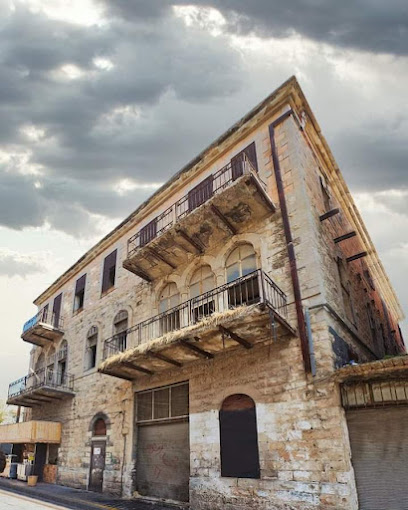
Iraq ed-Dubb
Discover the enchanting historical landmark of Iraq ed-Dubb in Ajloun, Jordan, and delve into the rich cultural heritage of this captivating region.
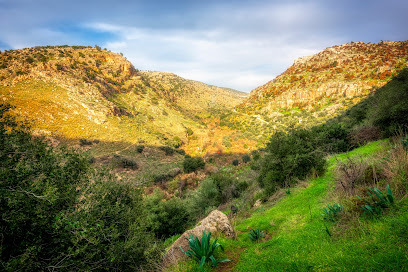
Abbasid Centre
Explore the Abbasid Centre in Tabqet Fahel, Jordan - a historical landmark showcasing the rich heritage and architectural beauty of the Abbasid Empire.
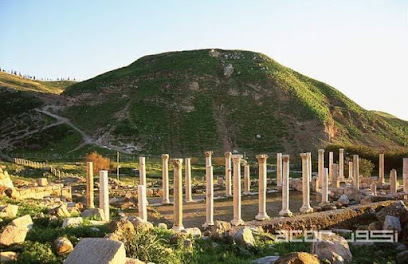
Qubba Square
Explore Qubba Square, a vibrant town square in Irbid, Jordan, where culture, history, and local life come together in a charming atmosphere.

Unmissable attractions to see
Archaeological Site of Jerash
Discover the ancient wonders of Jerash, where Roman heritage meets breathtaking archaeological beauty in the heart of Jordan.
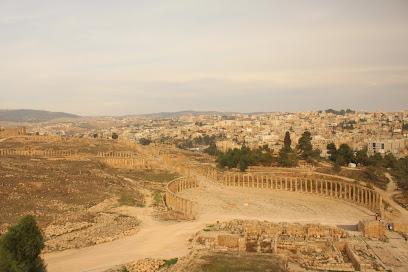
Yardenit
Experience the spiritual essence of Yardenit, a sacred baptism site on the Jordan River, where faith and natural beauty converge in harmony.
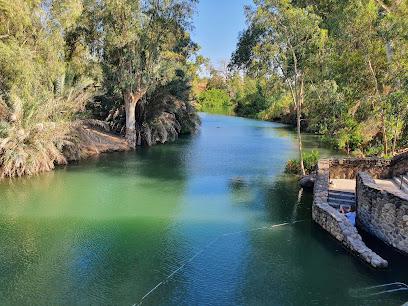
Ajloun Castle
Discover Ajloun Castle, a historical gem in Jordan, blending medieval architecture with breathtaking natural landscapes.
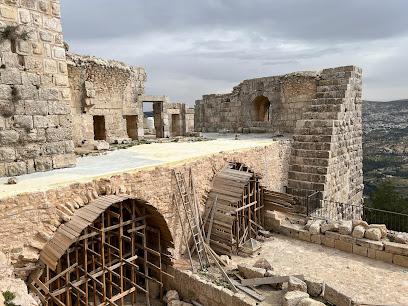
Tomb of Rabbi Meir
Explore the sacred grounds of the Tomb of Rabbi Meir in Tiberias, a key pilgrimage site with deep historical and spiritual significance.
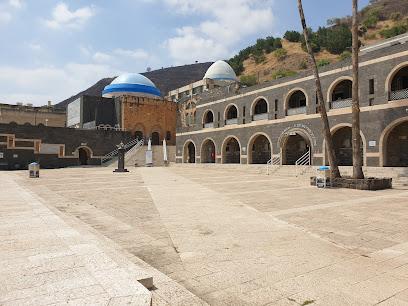
King Abdullah II Gardens
Explore King Abdullah II Gardens in Aydoun, a serene park filled with lush landscapes, perfect for relaxation and outdoor activities.
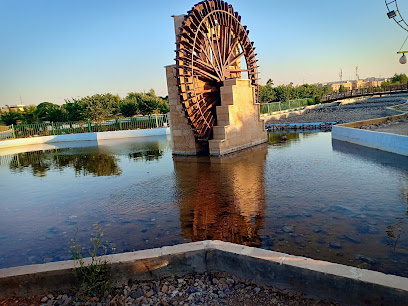
Beit She'an National Park
Discover the ancient wonders of Beit She'an National Park, where history and breathtaking landscapes converge in a captivating journey through time.
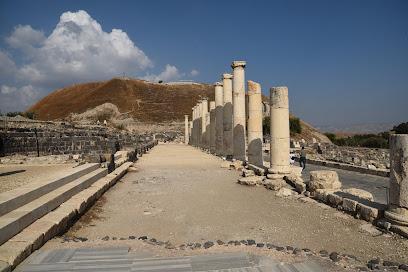
The Church of the Beatitudes
Explore the serene beauty and spiritual significance of the Church of the Beatitudes, a must-visit destination overlooking the stunning Sea of Galilee.
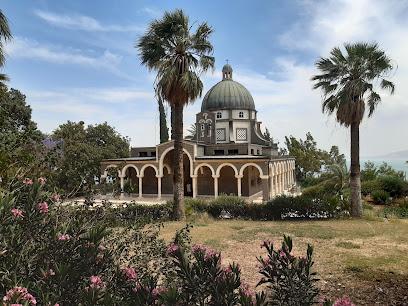
Hamat Tiberias National Park
Experience the natural beauty and historical treasures of Hamat Tiberias National Park, where relaxation and exploration await beside the Sea of Galilee.
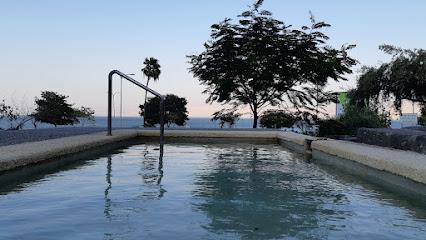
The Tomb Site of the Rambam
Discover the profound history and serene beauty at the Tomb Site of the Rambam in Tiberias, a sacred pilgrimage destination overlooking the Sea of Galilee.
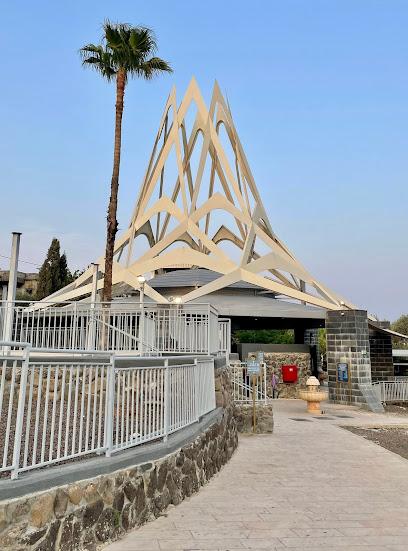
Gamla Nature Reserve
Discover the beauty of Gamla Nature Reserve, Israel's breathtaking national park filled with rich biodiversity and stunning hiking trails.
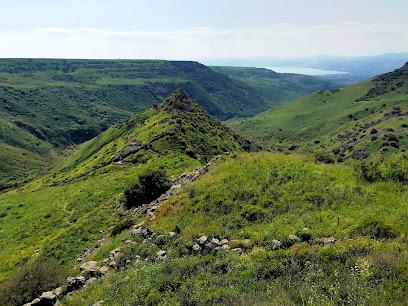
Churches of Tabgha
Discover the serene beauty and rich history of Tabgha, home to the iconic Churches of Tabgha on the shores of the Sea of Galilee.
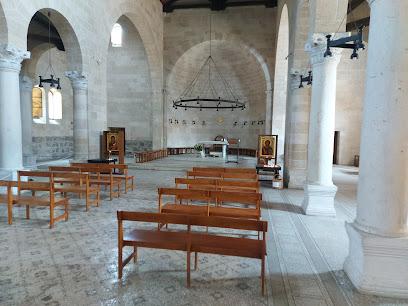
Ein Keshatot
Discover Ein Keshatot, a fascinating archaeological museum in Natur, Israel, where history and heritage come alive through captivating exhibits and guided tours.
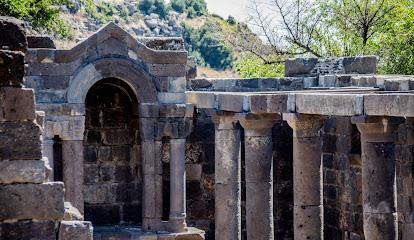
Jordan Star National Park
Explore the breathtaking beauty of Jordan Star National Park, a perfect blend of serene landscapes and thrilling outdoor adventures in Israel.
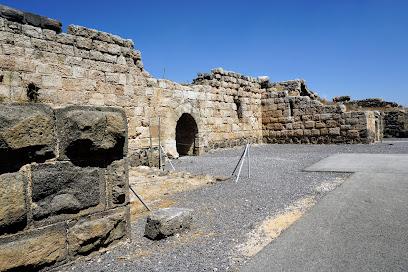
Eimar Irbid Park
Explore Eimar Irbid Park, a serene green space in Irbid, where nature, culture, and recreation blend beautifully for an unforgettable experience.
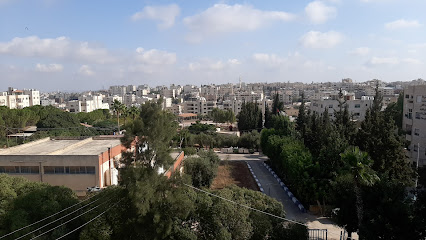
Church of the Primacy of Saint Peter
Discover the breathtaking beauty and spiritual significance of Tabgha, home to the Church of the Primacy of Saint Peter on the shores of the Sea of Galilee.
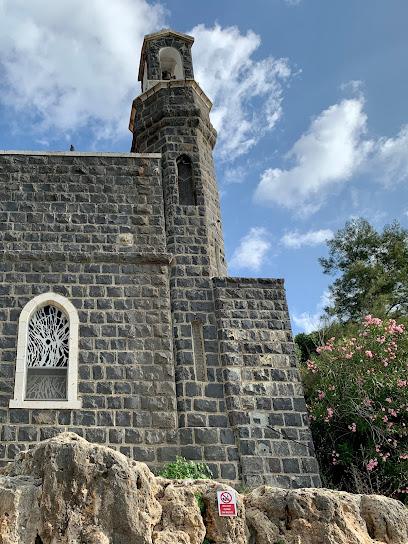
Essential places to dine
Grill Mark
Experience Irbid's vibrant culinary scene at Grill Mark – where delicious grilled dishes meet warm hospitality.
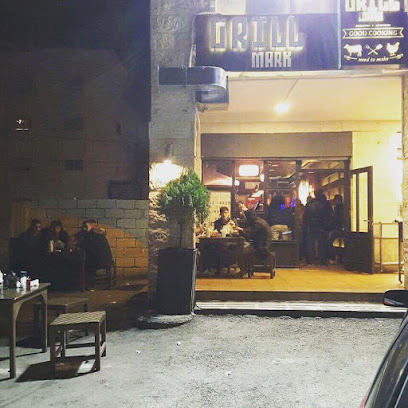
مطاعم أمية الكبرى Grand Omaya Restaurant
Experience authentic Jordanian cuisine at Grand Omaya Restaurant in Irbid, where every dish tells a story.
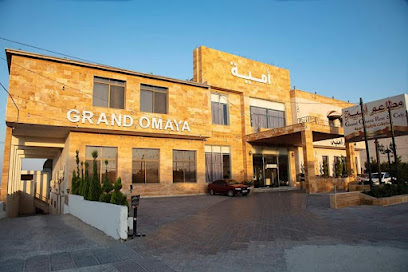
Ar Rassam
Experience authentic Jordanian cuisine at Ar Rassam in Irbid - where every meal is a celebration of local flavors.
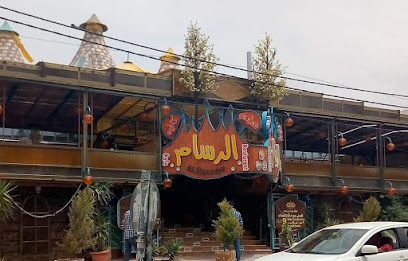
Enna W Bs Restaurant
Experience authentic Jordanian cuisine at Enna W Bs Restaurant in Irbid - where every meal tells a story of flavor and tradition.
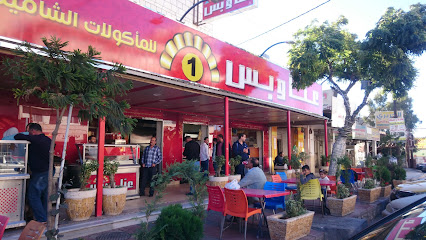
Meat Moot
Discover the authentic taste of Jordan at Meat Moot, where exquisite grilled meats meet warm hospitality in Irbid.
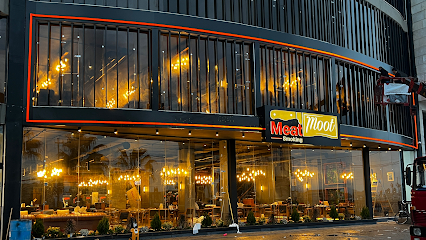
Al Domary Restaurant
Discover authentic Jordanian flavors at Al Domary Restaurant in Irbid - where every meal tells a story.
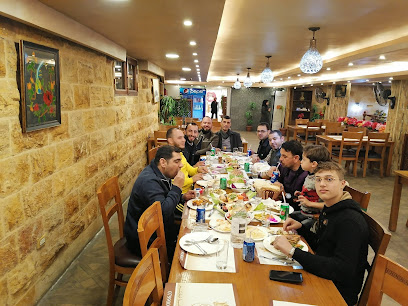
Deirat Al Hatab Restaurant
Discover authentic Jordanian barbecue at Deirat Al Hatab Restaurant in Irbid—where every bite tells a story.
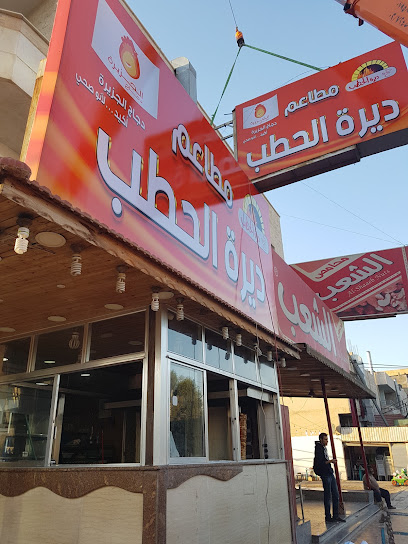
Abu Riyadh Restaurants & Grills
Savor authentic Jordanian cuisine at Abu Riyadh Restaurants & Grills in Irbid—where every meal is an unforgettable experience.
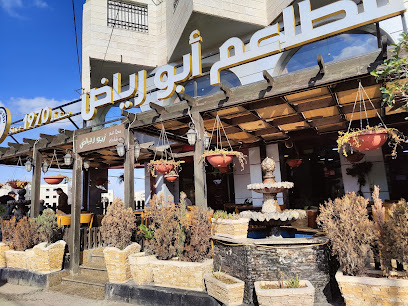
Khan Zaid - Irbid
Experience authentic shawarma at Khan Zaid, Irbid's beloved eatery known for its delectable flavors and welcoming atmosphere.
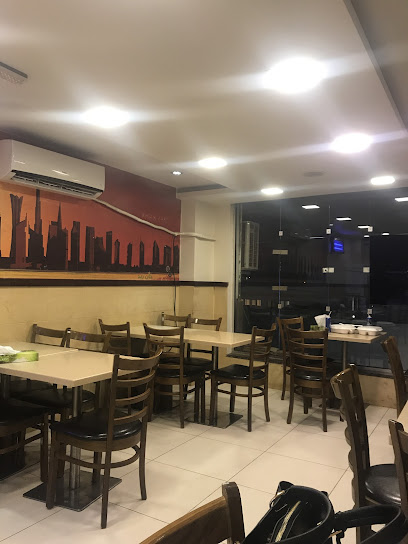
Layl & Nhar
Experience authentic Jordanian cuisine at Layl & Nhar in Irbid—where tradition meets modern culinary artistry.
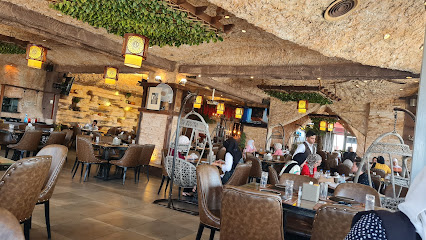
Palestine Restaurant
Experience authentic Palestinian cuisine at Palestine Restaurant in Irbid - where every meal tells a story of rich flavors and traditions.
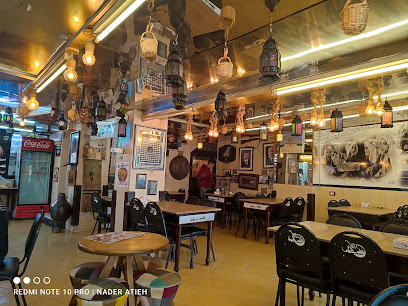
STEEL International Restaurant And Cafe
Experience exquisite flavors at STEEL International Restaurant And Cafe in Irbid - where local meets international cuisine.
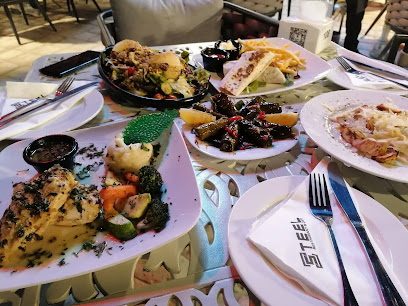
Mushroom
Discover Mushroom Restaurant: A Culinary Haven in Jordan Offering Fresh Flavors and Cozy Dining Experiences.

Adam Shawarma
Indulge in authentic shawarmas at Adam Shawarma - Irbid's favorite fast food destination serving delicious Middle Eastern flavors.
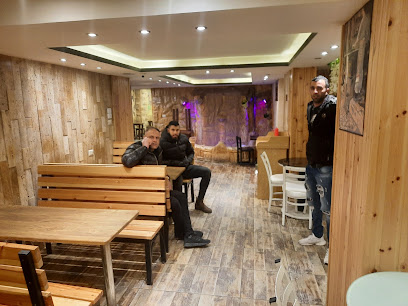
Malabarai Indian Restaurant
Experience the rich flavors of India at Malabarai Indian Restaurant in Irbid – where every dish tells a story.
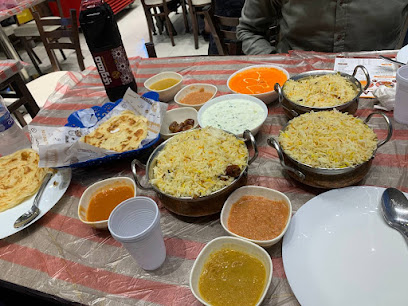
Markets, malls and hidden boutiques
Irbid City Center
Explore the vibrant Irbid City Center, a shopping haven featuring local and international brands, dining delights, and entertainment for all ages.
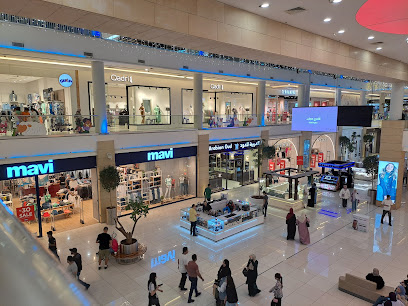
Arabella Mall
Discover the ultimate shopping experience at Arabella Mall in Irbid, where fashion, dining, and entertainment converge.
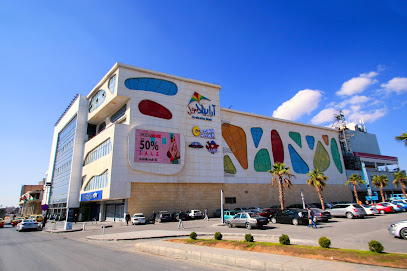
Irbid Mall
Experience the best of shopping and entertainment at Irbid Mall, the heart of retail in Irbid, Jordan.
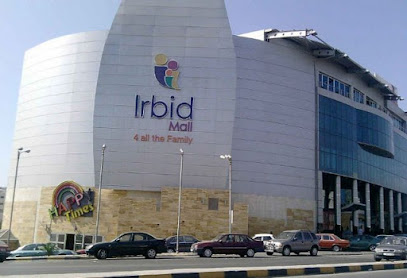
Al Radaidah Markets
Discover the rich culture and local flavors at Al Radaidah Markets in Irbid, a must-visit destination for every traveler in Jordan.
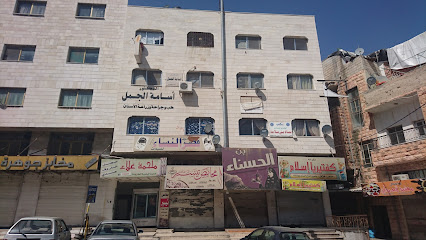
حسان مول للتصفيه الاوروبيه
Explore the stylish offerings at حسان مول للتصفيه الاوروبيه, a premier clothing store in Irbid, showcasing European fashion at great prices.
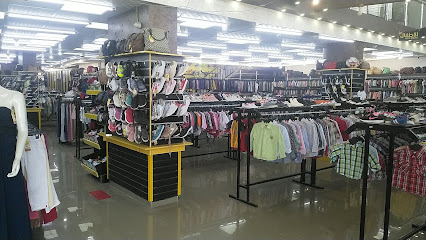
Marwan Mall
Discover the vibrant shopping scene at Marwan Mall in Aydoun, featuring trendy clothing stores and delightful dining options in a lively atmosphere.
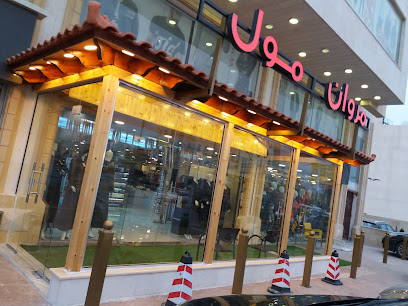
Adidas Store Irbid
Explore the Adidas Store in Irbid for top-quality sportswear and accessories that elevate your game and style.
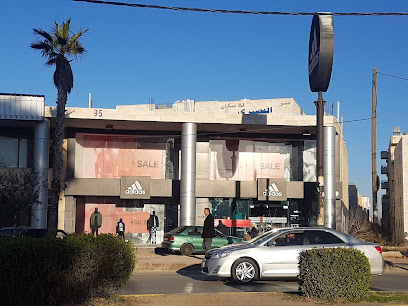
Boghous stores Bar
Experience the vibrant local culture at Boghous Stores Bar in Irbid, your go-to destination for a diverse selection of drinks and local hospitality.
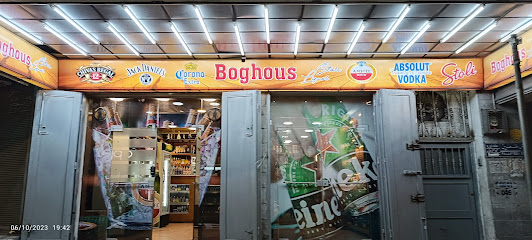
Black Iris Handicrafts
Uncover the essence of Jordanian craftsmanship at Black Iris Handicrafts, where culture meets creativity in a vibrant shopping experience.
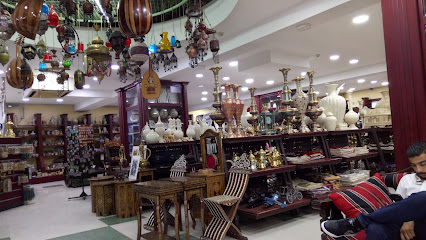
Max - Irbid City Center
Discover stylish and affordable fashion for the whole family at Max - Irbid City Center, your ultimate shopping destination in Irbid.

Neo Store
Explore Irbid's Neo Store, a top-notch gaming haven offering an extensive range of video games, consoles, and vibrant gaming culture.
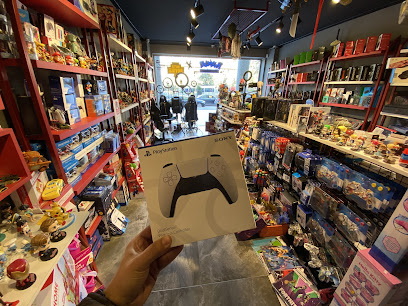
Mosaic house art & mosaics
Explore the vibrant Mosaic House in Madaba for exquisite mosaics and unique Jordanian souvenirs in an artistic shopping experience.
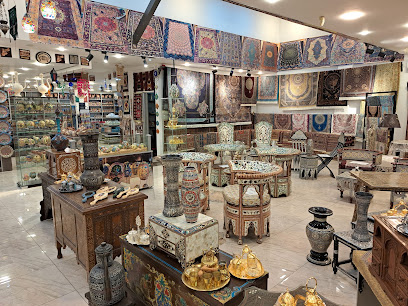
MINISO Arabella Mall
Explore MINISO Arabella Mall in Irbid for trendy home goods and toiletries at unbeatable prices during your Jordan adventure.
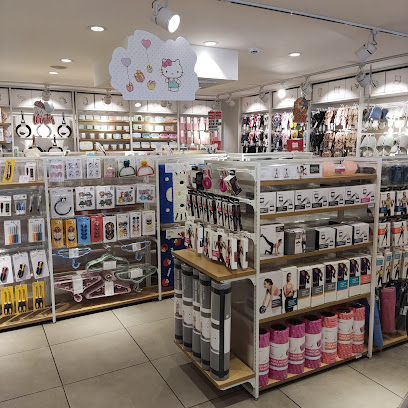
هدايا عموا والقسم الجديد بامبينو
Discover unique gifts and local treasures at هدايا عموا والقسم الجديد بامبينو in Irbid, your go-to shop for candles, perfumes, fashion accessories, and more.
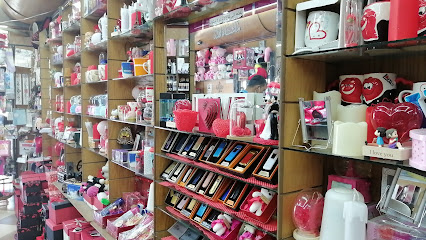
88 Market
Explore 88 Market in Irbid for a unique shopping experience filled with local and international delights.
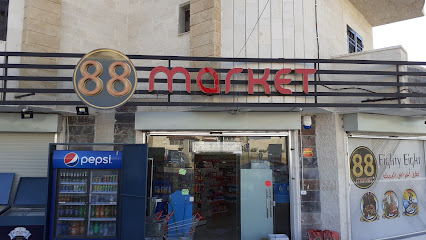
Essential bars & hidden hideouts
The Study House Irbid
Discover the perfect blend of comfort and productivity at The Study House in Irbid, a cozy café and lounge for travelers and locals alike.
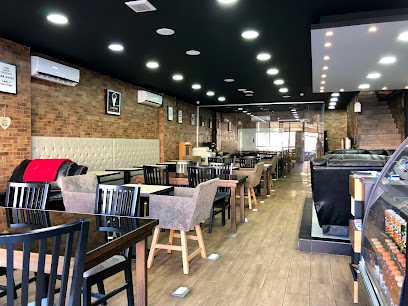
Thabet Store
Experience Irbid's vibrant nightlife at Thabet Store, a welcoming bar with a variety of drinks and a lively atmosphere perfect for socializing.
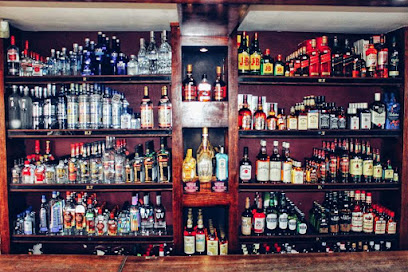
المحيط للرياضه
Visit المحيط للرياضه in Irbid for an exhilarating sports bar experience, delicious food, and a lively atmosphere to cheer for your favorite teams.
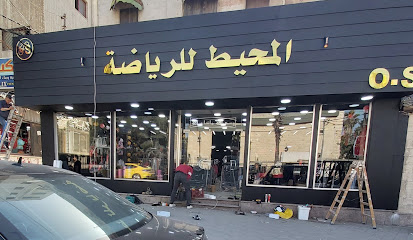
Abrar
Discover Abrar, Irbid's vibrant bar offering a unique blend of local drinks and a lively atmosphere perfect for socializing and relaxation.

Yazzon
Discover Yazzon in Irbid, where lively ambiance meets an extensive drink selection for the perfect night out.

Shoaa Café
Immerse yourself in the local culture at Shoaa Café, a vibrant bar in Irbid, perfect for drinks, socializing, and relaxing with friends.
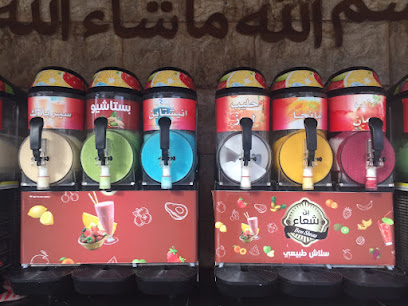
VOGO cat
Discover the charm of VOGO Cat in Irbid, a unique bar perfect for unwinding with friends and enjoying the local nightlife.

سمبل
Experience the vibrant nightlife at سمبل, a trendy bar in Irbid offering unique cocktails and lively atmosphere for an unforgettable evening.

صالح الحتاملة ابو صدام
Discover the lively ambiance of صالح الحتاملة ابو صدام, a vibrant bar in Irbid perfect for enjoying local drinks and mingling with friendly locals.

الأردن
Experience the vibrant nightlife of Jordan in Irbid's lively bars, blending rich culture with modern entertainment for an unforgettable evening.

اربد
Experience the lively bar scene in Irbid, Jordan, where tradition meets modern nightlife in a vibrant cultural atmosphere.

Almasera 1
Discover the lively atmosphere of Almasera 1, a bar in Irbid where locals and tourists mingle over delicious drinks and good company.

صحارى
Experience the vibrant nightlife at صحارى, a lively bar in Irbid, where local flavors and friendly atmosphere await every visitor.

Ethar
Experience the enchanting melodies and cozy ambiance at Ethar, Irbid's premier piano bar, where nights come alive with music and camaraderie.

Travel experiences inspired by this city
Explore more travel diariesLocal Phrases
-
- Helloمرحبا
[marhaba] - Goodbyeوداعا
[wada'an] - Yesنعم
[na'am] - Noلا
[la] - Please/You're welcomeمن فضلك
[min fadlik] - Thank youشكرا
[shukran] - Excuse me/Sorryعذرا
['udhran] - How are you?كيف حالك؟
[kayfa halik?] - Fine. And you?بخير. وأنت؟
[bikhayr. wa'ant?] - Do you speak English?هل تتحدث الإنجليزية؟
[hal tatahadath al'inglizia?] - I don't understandأنا لا أفهم
[ana la afham]
- Helloمرحبا
-
- I'd like to see the menu, pleaseأود أن أرى القائمة، من فضلك
[awad an ara alqaimah, min fadlik] - I don't eat meatأنا لا آكل اللحم
[ana la akl allahm] - Cheers!في صحتك!
[fi sahtak!] - I would like to pay, pleaseأود أن أدفع، من فضلك
[awad an adfa', min fadlik]
- I'd like to see the menu, pleaseأود أن أرى القائمة، من فضلك
-
- Help!النجدة!
[alnajdah!] - Go away!اذهب بعيدا!
[idhab ba'ida!] - Call the Police!اتصل بالشرطة!
[itassal bialshurtah!] - Call a doctor!اتصل بطبيب!
[itassal batabib!] - I'm lostلقد ضللت الطريق
[laqad dalalt altariq] - I'm illأنا مريض
[ana mariid]
- Help!النجدة!
-
- I'd like to buy...أريد أن أشتري...
[urid an ashtari...] - I'm just lookingأنا فقط أتطلع
[ana faqat atatl] - How much is it?كم تكلف؟
[kam taklif?] - That's too expensiveهذا غالي جدا
[hatha ghali jiddan] - Can you lower the price?هل يمكن خفض السعر؟
[hal yumkin kaff alsi'r?]
- I'd like to buy...أريد أن أشتري...
-
- What time is it?كم الساعة؟
[kam alsaa'ah?] - It's one o'clockالساعة الواحدة
[alsaa'ah alwahidah] - Half past (10)الساعة العاشرة والنصف
[alsaa'ah al'ashirah walnisf] - Morningالصباح
[assabah] - Afternoonالمساء
[almasa'] - Eveningالمساء
[almasa'] - Yesterdayأمس
[ams] - Todayاليوم
[alyawm] - Tomorrowغدا
[ghadan] - 1واحد
[wahid] - 2اثنين
[ithnayn] - 3ثلاثة
[thalatha] - 4أربعة
[arba'a] - 5خمسة
[khamsa] - 6ستة
[sitta] - 7سبعة
[sab'a] - 8ثمانية
[thamania] - 9تسعة
[tis'a] - 10عشرة
[asharah]
- What time is it?كم الساعة؟
-
- Where's a/the...?أين...؟
[ayn...?] - What's the address?ما هو العنوان؟
[ma hu al'anaan?] - Can you show me (on the map)?هل يمكنك أن تريني (على الخريطة)؟
[hal yumkinuk an tureeni (ala alkharitat)?] - When's the next (bus)?متى الحافلة القادمة؟
[mata alhaflah alqadimah?] - A ticket (to ....)تذكرة (إلى...)
[tadhkirah (ila...)]
- Where's a/the...?أين...؟
History of Irbid
-
Irbid, originally known as Arabella, has its roots tracing back to the Bronze Age. Archaeological evidence suggests that the area was inhabited as early as 5000 BCE. It was an important settlement due to its strategic location and fertile lands, making it a hub for agriculture and trade.
-
During the Hellenistic period, Irbid, known then as Arabella, became a prominent city within the Decapolis, a group of ten cities on the eastern frontier of the Roman Empire. It flourished under Roman rule, with significant urban development including temples, theatres, and roads that connected it to other key cities in the region.
-
In the Byzantine era, Irbid continued to thrive as an important Christian center. Numerous churches were built, and the city became a significant node in the spread of Christianity across the region. Artifacts from this period, including intricate mosaics and religious texts, provide insight into the city’s spiritual and cultural life.
-
The 7th century brought significant changes to Irbid with the Islamic conquests. The city was integrated into the Umayyad Caliphate, marking the beginning of a new era. Irbid adapted to Islamic governance, becoming a part of the larger Islamic world while retaining its local significance.
-
Under Ottoman rule, which began in the early 16th century, Irbid was a bustling administrative center. The Ottomans established schools, markets, and mosques, contributing to the city's development. The period also saw the construction of the famous Ottoman barracks, which played a crucial role in the administrative control of the region.
-
In the 20th century, Irbid became one of Jordan's key urban centers. During the British Mandate and after the establishment of the Hashemite Kingdom of Jordan, Irbid saw rapid modernization. The city expanded significantly in terms of infrastructure, education, and healthcare, becoming a hub for northern Jordan.
-
Irbid is renowned for its rich cultural heritage, blending ancient traditions with modern influences. The city is home to several museums, including the Irbid Archaeological Museum and the Museum of Jordanian Heritage, which showcase artifacts and exhibits that reflect its diverse historical layers. Traditional crafts, culinary practices, and festivals continue to play a significant role in the cultural life of Irbid's residents.
Irbid Essentials
-
Irbid is located in the northern part of Jordan, approximately 70 kilometers north of the capital, Amman. The nearest international airport is Queen Alia International Airport in Amman. From the airport, you can take a taxi or a bus to Irbid. The journey by road typically takes around 1.5 to 2 hours. There are also regular bus services from Amman to Irbid, operated by companies like JETT and Trust International Transport.
-
Irbid offers various modes of transportation including taxis, buses, and shared minibuses known as 'servees'. Taxis are widely available and relatively inexpensive. It's advisable to agree on the fare before starting your journey. Public buses and minibuses connect different parts of the city and surrounding areas. For a more flexible option, you can rent a car from one of the car rental agencies in Irbid or Amman.
-
The official currency in Jordan is the Jordanian Dinar (JOD). Credit cards are accepted in many hotels, restaurants, and larger shops, but smaller establishments may prefer cash. ATMs are widely available throughout Irbid, so withdrawing cash is convenient. It's a good idea to carry some cash, especially for small purchases and in more rural areas.
-
Irbid is generally a safe city for tourists, but like any destination, it's important to take standard precautions. Avoid walking alone at night in unfamiliar areas and keep an eye on your belongings in crowded places. While there are no specific high-crime areas targeting tourists, it's always best to stay vigilant and aware of your surroundings. Consult local advice for the latest safety updates.
-
In case of emergency, dial 911 for police assistance. For medical emergencies, dial 911 or head to one of the local hospitals, such as King Abdullah University Hospital. It is recommended to have travel insurance that covers medical emergencies. Pharmacies are available throughout the city for minor health issues and over-the-counter medications.
-
Fashion: Do dress modestly, especially when visiting religious sites. Avoid wearing revealing clothing. Religion: Do respect local customs and traditions. Always remove your shoes before entering mosques. Public Transport: Do be respectful and give up your seat to elderly passengers. Don't eat or drink on public transport. Greetings: Do greet people with a handshake, but note that some locals may prefer not to shake hands with the opposite gender. Eating & Drinking: Do try local delicacies and accept food offerings graciously. Don't refuse hospitality, as it is considered impolite.
-
To experience Irbid like a local, visit the local markets such as Souq Irbid, where you can buy fresh produce and traditional Jordanian goods. Engage with locals, as they are often friendly and willing to share stories about the city's history and culture. Don't miss visiting the Irbid Archaeological Museum and Yarmouk University, which offer insights into the region's rich heritage. For a unique experience, explore the nearby Ajloun Forest Reserve and the ruins of Umm Qais.
Trending Landmark in Irbid
Nearby Cities to Irbid
-
Things To Do in Umm Qais
-
Things To Do in Jerash
-
Things To Do in Beit She'an
-
Things To Do in Tiberias
-
Things To Do in Mafraq
-
Things To Do in Nazareth
-
Things To Do in Safed
-
Things To Do in Salt
-
Things To Do in Amman
-
Things To Do in Akko
-
Things To Do in Acre
-
Things To Do in Zikhron Ya'akov
-
Things To Do in Haifa
-
Things To Do in Nahariya
-
Things To Do in Hadera











